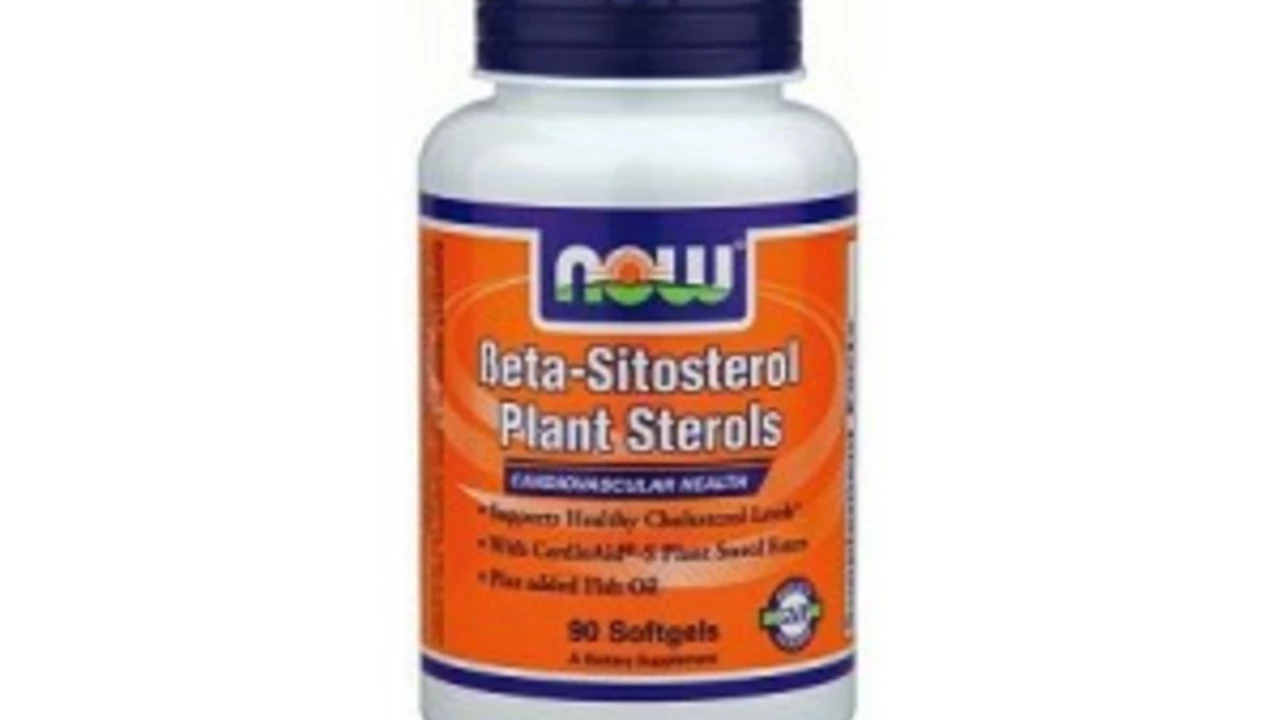Beta-sitosterol: Uses, Benefits, and Safety
Beta-sitosterol is a plant sterol found in nuts, seeds, vegetable oils and avocados. People take it as a supplement mainly for prostate symptoms and to help lower cholesterol. If you're curious whether it works, some clinical trials show modest improvement in urinary flow and reduced nighttime urination for men with benign prostatic hyperplasia (BPH). For cholesterol, plant sterols including beta-sitosterol can lower LDL when taken at higher doses as part of a heart‑healthy plan.
Supplements come in many forms—capsules, powders, and fortified foods. Quality matters: pick products that list the exact milligrams of beta‑sitosterol and have third‑party testing when possible. Take beta‑sitosterol with a fat-containing meal to improve absorption since it’s fat‑soluble.
How people use it
For prostate symptoms, studies often use daily doses in the 60–130 mg range and report benefits after 4–12 weeks. If you try it, expect gradual change rather than overnight relief. For lowering LDL, clinical programs usually recommend total plant sterol intake around 2 grams per day, often from fortified foods; pure beta‑sitosterol supplements alone are typically lower than that. Athletes and wellness users sometimes combine plant sterols with fiber and omega‑3s to support heart health, but that isn’t a universal approach.
Know the difference between sterol‑enriched foods and pure supplements. Fortified margarines, orange juice, and yogurts usually contain plant sterol esters and are designed to be eaten as part of meals; they can deliver the ~2 grams per day used in cholesterol trials. Over-the-counter beta‑sitosterol capsules supply smaller, targeted doses used for prostate symptoms. Before starting, get baseline tests: a lipid panel if your goal is cholesterol control, and a PSA if you're treating prostate symptoms. Use supplements as one part of a plan—add a fiber‑rich diet, active lifestyle, and fewer processed fats for better results. Store bottles in a cool, dry place and stop use if you notice new symptoms.
Safety, interactions, and dosing
Side effects are usually mild and mostly digestive—bloating, nausea, or diarrhea. Don’t use beta‑sitosterol if you have sitosterolemia, a rare genetic disorder that causes plant sterols to build up; this condition can raise cardiovascular risk. If you take cholesterol‑lowering drugs or hormone therapies, check with your healthcare provider before starting beta‑sitosterol to avoid unexpected interactions. Pregnant or breastfeeding women should avoid it unless a clinician approves it.
Read labels for added ingredients and choose reliable brands. Keep in mind that supplements are not regulated like medicines; potency and purity can vary. Track your symptoms and labs—like PSA or lipid panels—so you and your doctor can see if the supplement is helping. If you don’t notice improvement within three months, consider stopping or trying other evidence‑based options.
Want quick practical steps? Try a reputable product that discloses milligrams, start at a moderate dose, take it with food, and recheck symptoms after 8–12 weeks. And if you plan to replace prescribed therapy with a supplement, talk to your clinician first. Beta‑sitosterol can be helpful for some people, but it works best when used smartly and safely.

Beta-Sitosterol: The Secret Ingredient to Boost Your Immune System and Improve Heart Health
In my latest research, I've discovered an exceptional ingredient called Beta-Sitosterol, a plant sterol with extraordinary health benefits. Incorporating this element into your diet can work wonders for your immune system, enhancing its function and helping you stay healthy. But that's not all - Beta-Sitosterol also holds the potential to improve your heart health, offering a lower risk of heart disease. In a nutshell, this secret ingredient offers a two-in-one health boost, improving your immunity and cardiovascular health simultaneously. So, if you're looking to revamp your health regime, Beta-Sitosterol could be the secret ingredient you've been searching for!
July 26 2023